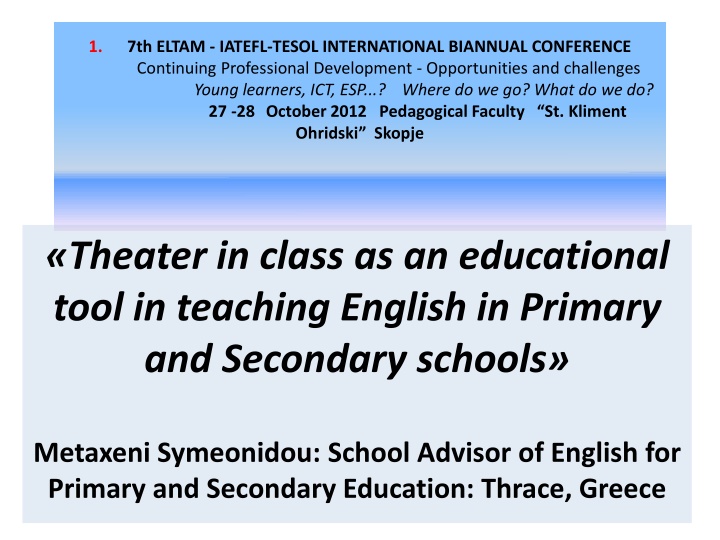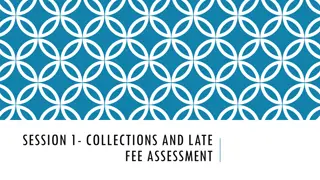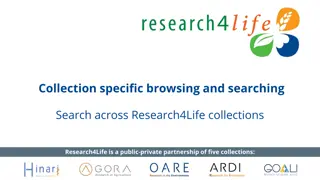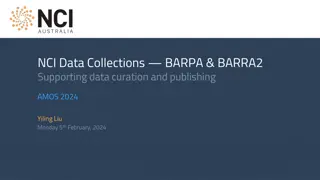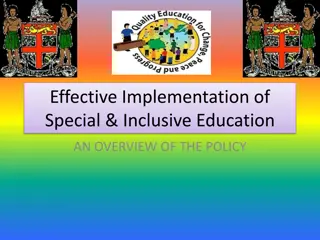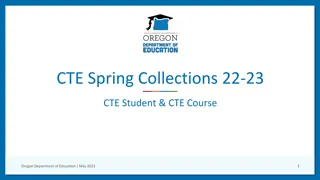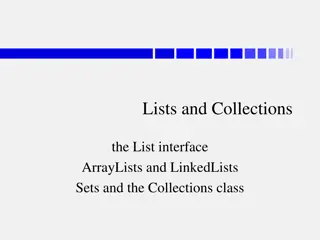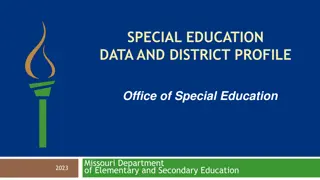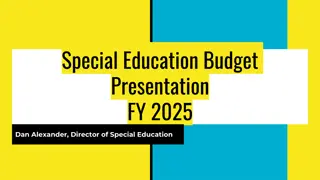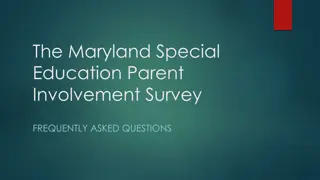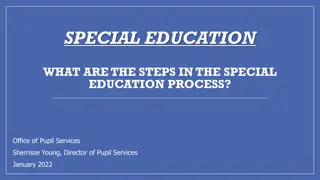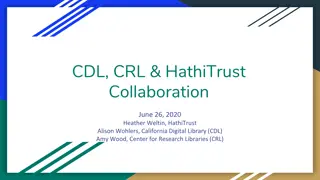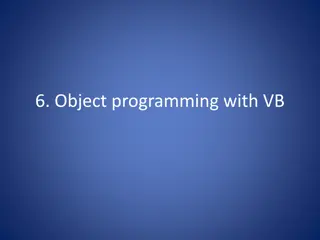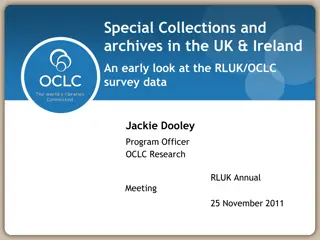New Data Collections for Special Education Services in 2025-26
Changes in WISEdata for the 2025-26 school year include new data collections for special education services, expected transfer school details, homeroom information, parent/guardian telephone numbers, and SCED course updates. The focus is on ensuring compliance, monitoring student needs, and enhancing data collection processes to support educational goals.
Download Presentation

Please find below an Image/Link to download the presentation.
The content on the website is provided AS IS for your information and personal use only. It may not be sold, licensed, or shared on other websites without obtaining consent from the author.If you encounter any issues during the download, it is possible that the publisher has removed the file from their server.
You are allowed to download the files provided on this website for personal or commercial use, subject to the condition that they are used lawfully. All files are the property of their respective owners.
The content on the website is provided AS IS for your information and personal use only. It may not be sold, licensed, or shared on other websites without obtaining consent from the author.
E N D
Presentation Transcript
1. 7th ELTAM - IATEFL-TESOL INTERNATIONAL BIANNUAL CONFERENCE Continuing Professional Development - Opportunities and challenges Young learners, ICT, ESP...? Where do we go? What do we do? 27 -28 October 2012 Pedagogical Faculty St. Kliment Ohridski Skopje Theater in class as an educational tool in teaching English in Primary and Secondary schools Metaxeni Symeonidou: School Advisor of English for Primary and Secondary Education: Thrace, Greece
2. Drama can reinforce a childs soul with imagination and it can touch its heart forever Brian Way (1953) (Stage director whose passion launched a worldwide movement for educational theatre in schools) Each student is an individual who learns through playing Jean Piaget Children have a wonderful faculty for teaching other children and learning from them Harriet Finlay-Johnson Education deals with each individual, Drama deals with the individuality of the people, with the uniqueness of each human being Peter Slade
3. The Ss are always full of energy and through their action they understand the world around them and they build their cognitive and intellectual skills . Jean Piaget
4. All the world's a stage, And all the men and women merely players; They have their exits and their entrances, And one man in his time plays many parts, His acts being seven ages . As You Like It Act 2, scene 7, 139 143 William Shakespeare
5. Innovations in ELT teaching I learn how to learn I learn how to act I learn how to live I learn how to exist with the others UNESCO for the 21stcentury Education
6. MODERN SCHOOL FOREIGN LANGUAGES COMPUTER COURSES ARTS
7. Drama is a unique educational tool which contributes to the development of the language, because it scarves reality and develops personal expression Gavin Bolton (1987)
8. OUTLINE OF THE PRESENTATION Benefits of Using Theater in class The role of the teacher in Theater in class The most common difficulties Types of educational theater in an ELT class How to create Theater in class Video samples with various performances
9. Why using Theater in class Benefits: Tr achieves reality in class Ss use only the target language in class It is an enjoyable meaning-based experience Ss come in contact with the foreign culture/literature Learning becomes fun, creative and memorable Ss learn new vocabulary and build confidence Ss work in groups and the focus shifts from the Tr to the Ss
10.Benefits: Drama in class can foster: Student-centered education Development of Ss s emotional, linguistic intellectual, imaginative and creative skills Full development of Ss personality Group sensitivity, cooperation and reflection Self-expression and improvement of all language skills Responsibility, decision-making and negotiation
11. Theater in class can be determined as: Autonomous /independent educational tool A teaching methodology A Pedagogical learning process An educational treatment
12. Teachers role in Theater in class : Fellow-worker Friend Member of the theater group A guide by the side Assistant and collaborator A creative artist Motivator Supporter a provider/facilitator of the language
13. Some difficulties Trs may encounter: Administrative staff Financial difficulties Long hours of rehearsal Extra time for students. Stress and anxiety of Ss Disinterest and skepticism of colleagues Lack of space
14. Types of Theater in an ELT class Role-play Play-game Imitations Simulation Dramatic exploration of texts Reading/narration of a story in class and writing dialogues Writing a theatrical play by Ss working in groups and narration in class /preparation for a performance at the school theater Readers theater
15. Types of Theater in an ELT class A performance in class/ at the school Hall Dramatization of a literary text and production of a theatrical play A story theater and Story telling
16. What to do before a school performance A Needs Analysis questionnaire : Oral interviews with the Ss Written reports of the Ss Class discussion
17. What to do before a school performance Encourage your Ss to attend a theatrical performance /to read theatrical plays Ask your Ss to write a review of a play they have seen/discuss with them about it Prepare a careful lesson plan before each session Dramatize the daily lesson Create a pleasant class environment (music relaxes) Present an open rehearsal in front of all the Ss of the school, Trs and parents
18. How to start a school performance At the end of a thematic unit ask your Ss to write their own dialogues (working in pairs/groups)using the vocabulary taught Choose important texts either from your course book or bring supplementary materials in class (bring in class a theatrical play Ss like and give them KEY WORDS Narrate the plot of the play or ask Ss to read the lines and talk about it Adjust the vocabulary of the play according to the needs and knowledge of the Ss Simplify the language according to the Ss language level Start with words-letters-phrases-sentences-texts Involve all Ss (especially the shy ones) in the procedure and give roles to ALL Ss
19. How to start a school performance: Prepare a careful lesson plan for each session Distribute roles to all Ss Ask Ss to talk about their roles, their characters in the play, and their emotions and feelings for their roles Discuss with Ss about the music, the costumes, the poster, where and when the play will be on Start the rehearsals The performance will be no more than 40 minutes The performance can be given in class or in the school Hall
20. Only what is seen sideways sinks deep. Drama teaches language thusly . E.M. Forster
21. When something When something comes from a child s soul, comes from a child s soul, nothing is lost nothing is lost .. Antonis Samarakis Antonis Samarakis ..
22. When Arts celebrate, then theater is born Gkaite
23. KEY WORDS: DRAMA - LANGUAGE - COMMUNICATION - ELT LEARNING
24. You must love life to live your life, and you must live your life to have life Thornton Wilder
Thank you! Metaxeni Symeonidou
BIBLIOGRAPHY: Drama Techniques in Language Learning: Alan Maley, Alan Duff: Cambridge University Press, 1982 Blatchford, Roy [Ed] (1986). The English Teacher's Handbook. London: Hutchinson Byram, M & Fleming, M [Eds] (1998). Language Learning in Inter-cultural Perspective: Approaches through Drama and Ethnography. London: CUP Davison, J. & Dawson, J (1998). Learning to Teach English in the Secondary School: A companion to School Experience. London : Routledge Dougill, John (1987). Drama Activities for Language Learning. London: Macmillan
BIBLIOGRAPHY: Fleming, Michael (1994). Starting Drama Teaching. London: David Fulton Johnson, K. & Morrow K. [Ed] (1981). Communication in the Classroom. London: Longman Maley, A. & Duff A (1982). Drama Teaching in Language Learning. London: CUP O' Neill, C. & Lambert, A (1982). Drama Structures: A Practical Handlook for Teachers. Portsmouth: Heinemann Peacock, Colin (1990). Classroom Skills in English Teaching: A Self- Appraisal Framework. London: Routledge Wessels, Charlyn (1987). Drama . Oxford: OUP Case D., and K.Wilson, 2003. English sketches. Oxford: Macmillan Heinemann. Philips, S. 200. Drama with children. Oxford: Oxford University Press. Galina Zalta, 2006 Using Drama with children. English Teaching Forum, vol. 44, No 2
BIBLIOGRAPHY: Wessels, Ch., ed. by Maley, a., Drama, Oxford university Press, 1991 Berry C (1973) Voice and the Actor London: Harrap Hodgson J (ed) (1972) The Uses of Drama London: Methuen Johnstone K (1981) Impro London: Methuen Pisk L (1975) The Actor and his Body London: Harrap Holden, Susan (1981): Drama in Language Teaching. Essex: Longman Wessels, Charlyn (1987). Drama. Oxford, Oxford University Press. 21. Sam, Wan Yee (1990) Drama in Teaching English as a Second Language- a Communicative Approach. The English Teacher, vol. 9, July 1990. Malaya. Spolin, Viola (1986). Theatre Games For the Classroom. Northwestern University Press, Evanston, Illinois
THANK YOU! Metaxeni Symeonidou 27/10/2012
